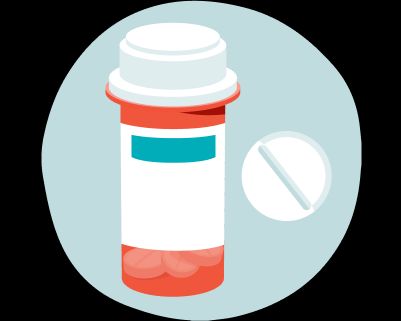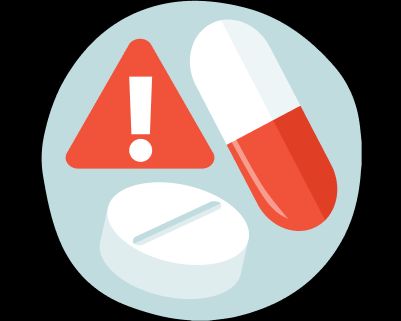Verzenio (abemaciclib) is a prescription drug that’s used to treat breast cancer in some adults. Verzenio’s cost may depend on factors such as the pharmacy you use and whether you have health insurance.
Verzenio is prescribed to treat breast cancer that’s hormone receptor-positive and HER2-negative. It may be used for metastatic or early stage breast cancer in specific situations. For these purposes, it may be used alone or with another medication in certain adults.
The active ingredient in Verzenio is abemaciclib. (An active ingredient is what makes a drug work.) Verzenio comes as a tablet that you’ll swallow.
For more details on Verzenio, see this in-depth article.
The price of Verzenio can vary. Your cost may depend on your treatment plan, your insurance coverage (if you have it), and where you pick up your medication.
To find out how much you’ll pay for Verzenio, including your cost per month, talk with your doctor, pharmacist, or insurance provider.
Note: If you have insurance, you may need to get prior authorization before your insurance provider will cover Verzenio. This means your insurer and your doctor will discuss Verzenio in regard to your treatment. Then, the insurance company will determine whether the drug is covered. If Verzenio requires prior authorization and you don’t receive it before you start treatment, you could pay the full cost of the drug.
Be sure to ask your insurance company whether Verzenio requires prior authorization.
If you’re looking for coupons or savings offers, you may find options to help lower Verzenio’s cost through the drugmaker.
Verzenio prescriptions are only filled at specialty pharmacies. Be sure to tell your pharmacist about your Verzenio Savings Card, and you could pay as little as $0 with an eligible insurance plan.
Here are answers to some frequently asked questions about Verzenio and cost.
How much does Verzenio cost with Medicare?
Verzenio’s cost with Medicare depends on the plan you have. According to the drug’s manufacturer, most people with Medicare Part D might pay $0 to $14 per month for Verzenio.
It’s important to note that your specific coverage may vary. For example, some Medicare plans may require you to pay a percentage of the total cost of Verzenio. But others may have a copay (a fixed amount that you may have to pay for your medication).
Your cost may also depend on whether your Medicare plan has a prior authorization requirement you must meet before the drug is covered.
For more information on what you can expect to pay for Verzenio with Medicare, call your Medicare plan provider for details. You can also check out this article
What’s the cost of Verzenio without insurance vs. with insurance?
The cost of Verzenio without insurance versus with insurance can vary based on your insurance plan benefits and other factors.
Some factors that may affect your cost of Verzenio without insurance include:
- your treatment plan and drug dosage
- where you pick up your medication
- whether you get a 30-day or 90-day supply of the drug
- any cost savings programs you qualify for to save money on Verzenio
The same factors affect your cost of the drug if you’re covered by insurance. In addition, your cost with insurance depends on:
- your individual plan benefits
- any prior authorization requirements for the plan
- whether you’re eligible for the Verzenio Savings Card
To find out more about your cost with and without insurance, check with your doctor, pharmacist, or insurance provider if you have one.
Verzenio only comes as a brand-name drug. It’s not currently available in a generic version. A generic drug is an exact copy of the active drug in a brand-name medication. Generics tend to cost less than brand-name drugs.
Why is there such a cost difference between brand-name drugs and generics?Years of research and testing are needed to ensure that brand-name drugs are safe and effective. This testing can make the drugs expensive.
The drugmaker of a brand-name drug can sell the drug for up to 20 years. After that, other drugmakers can create generic versions. This competition in the market can lead to lower costs for generics. And because generics have the same active ingredients as brand-name drugs, they don’t need to be studied again. This can also lead to lower generic costs.
If you need help covering the cost of Verzenio or understanding your insurance, check out these resources:
On these sites, you can find insurance information, details on drug assistance programs, and links to savings cards and other services.
If you have questions about how to pay for your prescription, talk with your doctor or pharmacist.
If you still have questions about the cost of Verzenio, talk with your doctor or pharmacist. They may be able to give you a better idea of what you’ll pay for this drug. But if you have health insurance, you’ll need to talk with your insurance provider to learn the actual cost you’ll pay for Verzenio.
Examples of questions you may want to ask your doctor or insurance provider include:
- Does my cost for Verzenio depend on the strength of the drug I’m prescribed?
- Would the price I pay for Verzenio change if my insurance coverage changes?
- Are there other lower cost options to treat my condition?
To learn more about Verzenio, see these articles:
To get information on different conditions and tips for improving your health, subscribe to any of Healthline’s newsletters. You may also want to check out the online communities at Bezzy. It’s a place where people with certain conditions can find support and connect with others.
Disclaimer: Healthline has made every effort to make certain that all information is factually correct, comprehensive, and up to date. However, this article should not be used as a substitute for the knowledge and expertise of a licensed healthcare professional. You should always consult your doctor or another healthcare professional before taking any medication. The drug information contained herein is subject to change and is not intended to cover all possible uses, directions, precautions, warnings, drug interactions, allergic reactions, or adverse effects. The absence of warnings or other information for a given drug does not indicate that the drug or drug combination is safe, effective, or appropriate for all patients or all specific uses.








